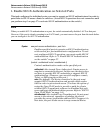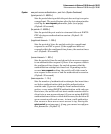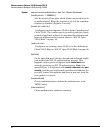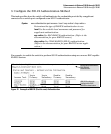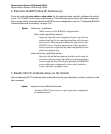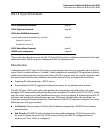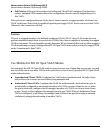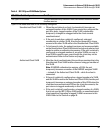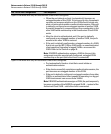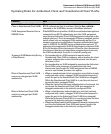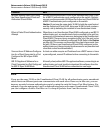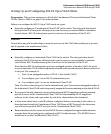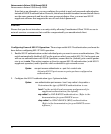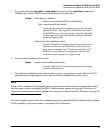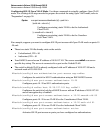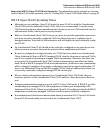
47
Enhancements in Release F.05.05 through F.05.70
Enhancements in Release F.05.05 through F.05.60
Open VLAN Mode with Only an Unauthorized-Client VLAN Configured:
• When the port detects a client, it automatically becomes an
untagged member of this VLAN. To limit security risks, the network
services and access available on this VLAN should include only
what a client needs to enable an authentication session. If the port
is statically configured as an untagged member of another VLAN,
the switch temporarily removes the port from membership in this
other VLAN while membership in the Unauthorized-Client VLAN
exists.
• After the client is authenticated, and if the port is statically
configured as an untagged member of another VLAN, the port’s
access to this other VLAN is restored.
• If the port is statically configured as a tagged member of a VLAN
that is not used by 802.1X Open VLAN mode, an unauthenticated
client capable of operating in tagged VLANs can access this
VLAN. Refer to the Caution on page 45.
Note: If RADIUS authentication assigns a VLAN to the port, this
assignment overrides any statically configured, untagged VLAN
membership on the port (while the client is connected).
Open VLAN Mode with Only an Authorized-Client VLAN Configured:
• Port automatically blocks a client that cannot initiate an
authentication session.
• If the client successfully completes an authentication session, the
port becomes an untagged member of this VLAN.
• If the port is statically configured as a tagged member of any other
VLANs, an authenticated client capable of operating in a tagged
VLAN environment can access these VLANs.
Note: If RADIUS authentication assigns a VLAN, the port temporarily
becomes a member of the RADIUS-assigned VLAN —instead of the
Authorized-Client VLAN—while the client is connected.
802.1X Per-Port Configuration Port Response



